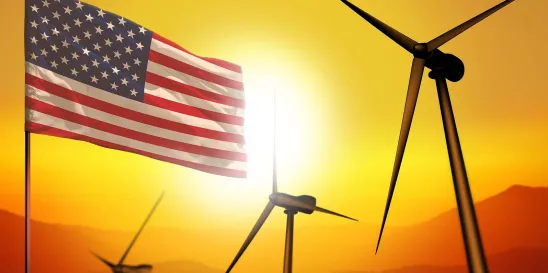National Climate Assessment + New Funding for Climate Resilience
The US Global Change Research Program released the Fifth National Climate Assessment, which provides authoritative information on the risks, impacts, and responses to climate change in the United States. Mandated by the Global Change Research Act of 1990, the report finds that “The effects of human-caused climate change are already far-reaching and worsening across every region of the United States. Rapidly reducing greenhouse gas emissions can limit future warming and associated increases in many risks. Across the country, efforts to adapt to climate change and reduce emissions have expanded since 2018, and US emissions have fallen since peaking in 2007. However, without deeper cuts in global net greenhouse gas emissions and accelerated adaptation efforts, severe climate risks to the United States will continue to grow.”
Alongside the release of the assessment, the Biden administration announced more than $6 billion in investments to make communities across the country more resilient to the impacts of climate change, including by strengthening America’s aging electric grid infrastructure, reducing flood risk to communities, supporting conservation efforts, and advancing environmental justice. The investments include:
- $3.9 billion from DOE to strengthen and modernize the electric grid.
- $2 billion from the EPA to support community-driven projects that deploy clean energy, strengthen climate resilience, and build community capacity to respond to environmental and climate justice challenges.
- $300 million from FEMA’s Swift Current Initiative for communities impacted by catastrophic flooding.
- $100 million from the Interior Department for water infrastructure upgrades that advance drought resilience in the West.
In addition, the Defense Department has launched a new Climate Resilience Portal to respond to requests from servicemembers for a one-stop focal point for accessing authoritative and actionable climate change information.
DOE Launches New Opportunity for Advanced Batteries & Battery Materials
Continuing the rollout and implementation of the Bipartisan Infrastructure Law (BIL), and in support of the Biden administration’s goals of a fully carbon pollution–free electricity sector by 2035 and a net-zero economy by 2050, the US Department of Energy’s (DOE) Office of Manufacturing and Energy Supply Chains (MESC) recently announced a new funding opportunity announcement (FOA) to support the production of advanced batteries and battery materials, largely for use in electric vehicles, electric grid energy storage applications, or both.
With up to $3.5 billion available, the Battery Materials Processing and Battery Manufacturing Grants will support facilities used for “battery-grade processed critical minerals, battery precursor materials, battery components, and cell and pack manufacturing” at new, retrofitted, and expanded domestic facilities.
MESC anticipates awarding between 19 – 41 awards under this opportunity, with award amounts ranging between $50 million and $300 million. Approved projects must include a cost share of no less than 50% of the total project cost, with the applicant’s cost share coming from private capital. Selected projects will run from 24 months to 60 months. All work for projects selected under this FOA must be performed in the United States.
Interested parties must submit concept papers of no more than seven pages by January 9, 2024.
Read more from ML Strategies on this funding opportunity at our Insights Center.
New Legislation Supports Bidirectional EV Charging
Rep. Julia Brownley (D-CA), a member of the House Committee on Transportation & Infrastructure, has introduced legislation to promote bidirectional electric vehicle (EV) charging,
enabling EV owners to send power back to their homes, businesses, and the utility grid. Aimed at promoting energy grid resiliency efforts and renewal energy options, the Bidirectional Electric Vehicle Charging Act directs the Energy Department to develop a National Electric Vehicle Bidirectional Charging Roadmap and to establish technical standards for EV manufacturers to standardize bidirectional charging technology, requires that all new EVs manufactured starting in 2027 be capable of bidirectional charging, and directs FEMA to issue regulations requiring hazard mitigation plans submitted by states or local governments to incorporate bidirectional charging capabilities. The bill is cosponsored by Reps. Jill Tokuda (D-HI), Emanuel Cleaver (D-MO), and Kathy Castor (D-FL).
Bipartisan Infrastructure Law at Year Two
The Biden administration celebrated the two-year anniversary of the Bipartisan Infrastructure Law on November 9 by issuing updated state-by-state fact sheets with detailed information about announced funding and projects in each state, along with anticipated funding by category over the next five years, as well as an updated map showcasing the more than 40,000 projects across 4,500 communities nationwide. Projects covered in the fact sheets and map include roads and bridges, rail, airports, ports and waterways, transit and school buses, clean water, high-speed internet, grid modernization, clean energy deployment, Superfunds and brownfields cleanup, orphaned wells and abandoned mines, climate resilience, electric vehicle (EV) charging, EV batteries, and critical minerals.




 />i
/>i

